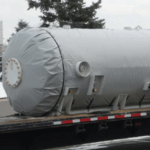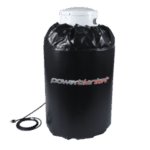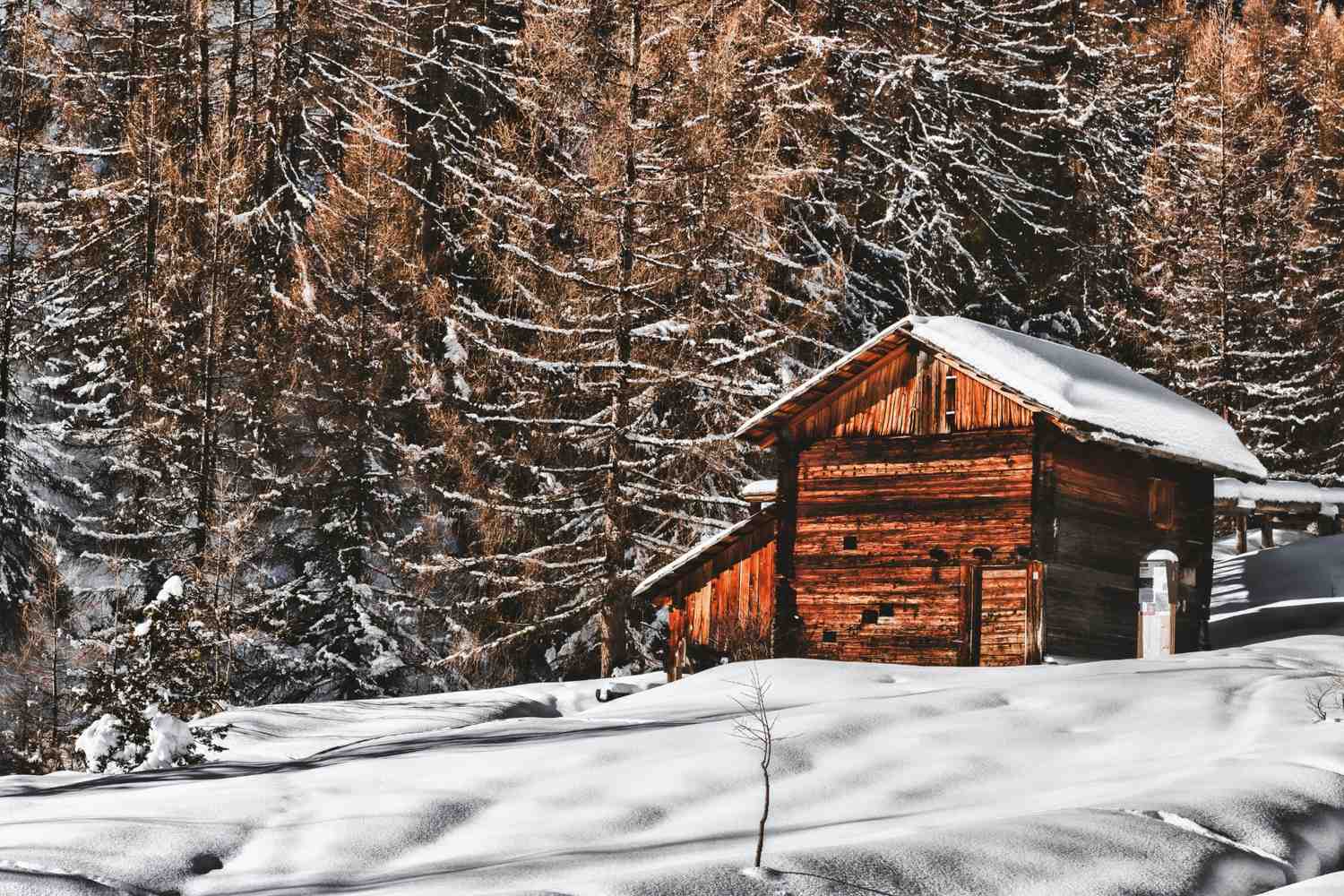
There’s nothing quite like a cozy cabin to get away from a busy life to rest and relax in. From a small hunting cabin to a rustic retreat for a weekend in the snow, family cabins are often the highlight of many trips and reunions. However, heating for cabins during the winter can be a difficult challenge. This is especially true for remote cabin dwellers.
HEATING FOR SMALL CABINS
Finding a dependable energy source can be tricky. While there are a few popular options, it can be difficult to know the best choice when space is limited and locations are more off the grid. Safety is also a top priority when heating your cabin.
Electric
Electric service can be unreliable, and generators lack the necessary power to keep lights, heaters, ovens and more running at the same time. This works better for bigger cabins where service is more readily available. It may be one of the easiest options for providing heat to a small cabin, but in remote locations, it isn’t the most reliable.
Wood Burning
A warm fire provides a cozy and inviting atmosphere to any cabin, no matter how cold it is outside. While wood burning stoves have come a long way, they still have some downsides. You must make sure you have a constant supply of firewood, meaning you might be spending a lot of time cutting and storing the wood properly. Some people are sensitive to the smoky air it creates. For others, their environmental impact will prevent wood burning stoves from being the top choice of heat for their cabins.
Gas Heaters
One of the more commonly used heating methods, gas heaters can be simpler and more reliable than other options. They can either be flued or non-flued, or vented or unvented. They burn natural gas, liquefied petroleum gas, butane or propane. Using propane for cabins or remote homes is safe for you and the environment, and convenient. While some folks choose to use propane as an energy backup, others have successfully used it to live 100% off the grid. Some popular propane heaters used in small cabins include:
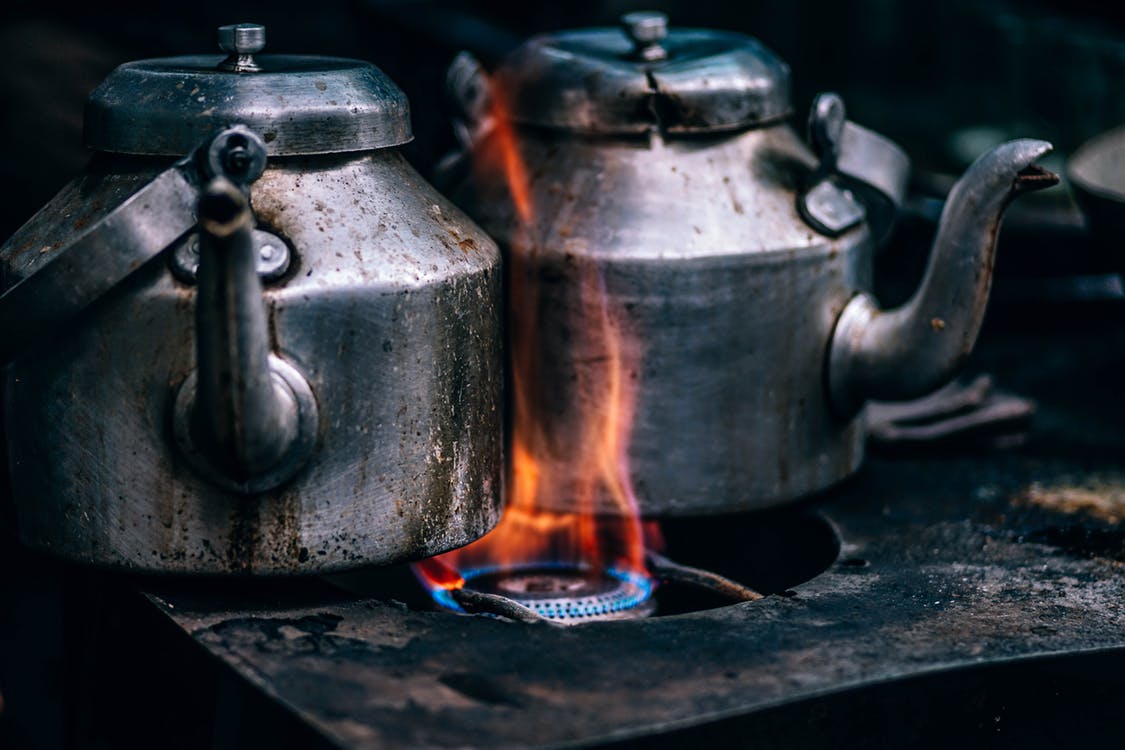 Mr. Heater Portable Buddy Radiant Heater: An efficient heater that doesn’t take up a lot of space, it’s easy to move around when needed.
Mr. Heater Portable Buddy Radiant Heater: An efficient heater that doesn’t take up a lot of space, it’s easy to move around when needed.- Avenger Dual Fuel Blue Flame Heater: This heater can use either natural gas or propane and heats up to 1,400 sq ft of space, making it a great option for larger spaces.
- Dyna-Glo Vent Free Propane Heater: It can be easily mounted on the wall and offers customizable heat settings.
PROPANE FAQ
Is it safe?
Some people may be wary about using propane due to safety concerns. However, as with any other power source, it’s perfectly safe so long as it’s used properly. For propane, this means propane tank storage should be outside and propane appliances should vent to the outside of the cabin/home. Furthermore, it’s recommended that carbon monoxide detectors be installed in living spaces that use propane for power or heat.
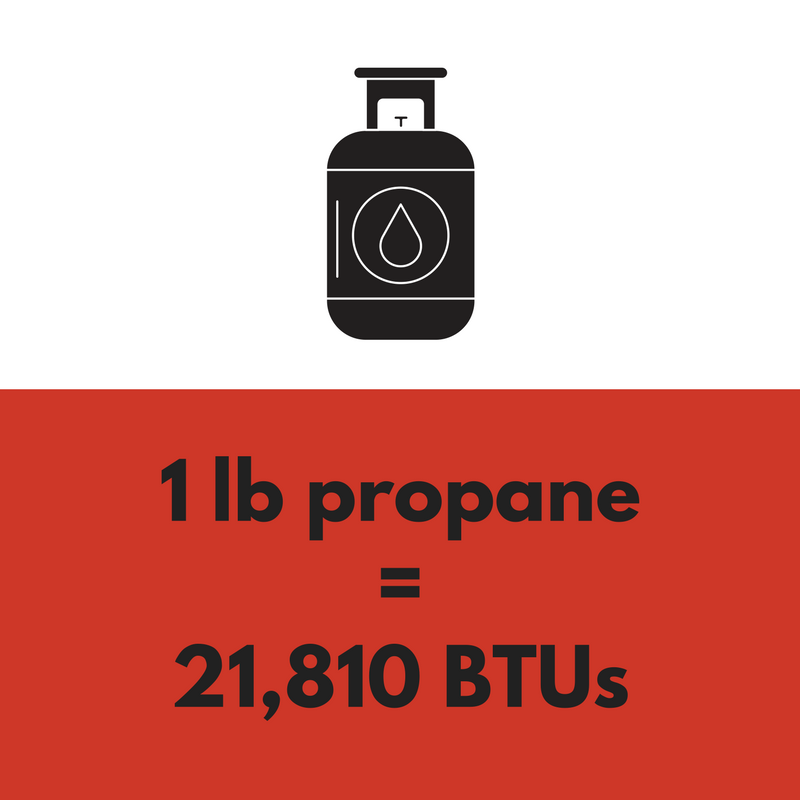
Some people may be wary about using propane due to safety concerns. However, as with any other power source, it’s perfectly safe so long as it’s used properly. For propane, this means propane tank storage should be outside and propane appliances should vent to the outside of the cabin/home. Furthermore, it’s recommended that carbon monoxide detectors be installed in living spaces that use propane for power or heat.
How convenient is it compared to other heating methods?
A single propane tank can effectively power everything you need for comfortable living at the cabin. It can power any home appliance or other accessories as long as the appliance is designed for propane. Propane-powered appliances include ovens, stovetops, refrigerators, freezers, clothes dryers, central heating, water heaters, outdoor grills, room heaters, generators, and more.
How long does a propane tank last?
Figuring out how long a propane tank will last is pretty simple; In ideal conditions 1 pound of propane has about 21,810 BTUs of energy in it. To make the calculation you just need to know how many pounds or gallons of gas are in your full tank and the BTU/hr requirement of your appliance(s).
For example, 20 pounds of propane could keep a stovetop burner with a BTU of 7000/hr going on full blast for 62 hours (20 x 21,810 BTUs=436,200 BTUs, 436,200 BTUs ÷ 7000 BTUs/hr= 62.3 hr).
It’s recommended that you use a commercial propane tank (100 lb or more) if you plan on heating and/or using multiple appliances powered by propane over an extended amount of time. Larger propane tanks will run more smoothly during temperature changes and will minimize propane tank refills, making the process much easier for you.
Does propane have a freezing point?
If you’re planning on using propane as an energy source during cold winter months, this question may have crossed your mind. Propane can freeze at -306.4°F. So, it’s not really something you need to worry about.
You do, however, need to worry about propane’s boiling point, -43.6°F. Under this temperature, propane will stop evaporating, which means your propane tank will completely stop working. Even when cold temperatures aren’t quite that extreme, propane tanks might struggle to keep up (this is especially true with smaller tanks). Cold weather will affect the pressure of propane tanks, causing you to go through propane quickly or for your tank to become faulty. Consider gas delivery systems to better control the temperature of your propane. When it’s cold outside, it’s also smart to keep the snow from accumulating on top of exposed propane tanks and allowing the sun to help warm them.
PROPANE TANK HEATERS
When using propane for cabins, propane tank heaters are a reliable option to keep everything operating smoothly. Powerblanket offers top of the line, maintenance free gas cylinder heaters that will keep your tank running efficiently, even when ambient temperatures are less than ideal.
If you’re looking for an effective solution to warming your cabin’s propane tanks, we recommend you check out the PBL 420, PBL 500, or PBL1k 1000. These products from the Powerblanket Lite line feature a less expensive price tag without losing much performance.
No matter what you use your cabin for, without adequate heat, it won’t make for an enjoyable stay. Being prepared with backup options and tank heaters can help ensure that you are prepared for even the coldest winter storms.
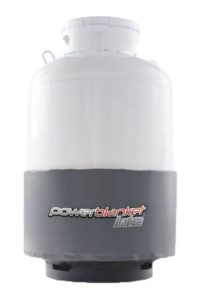
Keep your propane tanks at the perfect pressure with Powerblanket.


